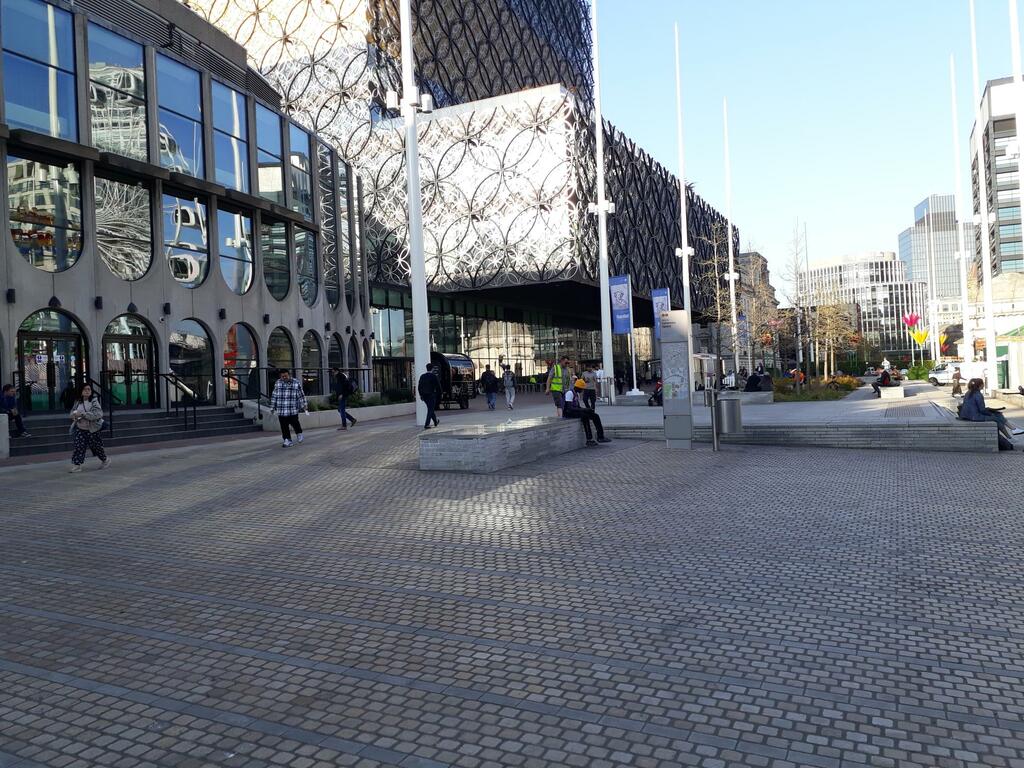SO, WHAT IS THE CONNECTION?
Birmingham is one of the first super diverse cities in the UK having substantial first, second and third generation citizens who are descended from overseas commonwealth nations. As a major city we are, in effect, a mini commonwealth of nations in our own right.
The UK is a member of the Commonwealth of Nations – representing 56 independent nations across the world - and most of its operational structure is headquartered in the UK. It makes sense, therefore, that as a nation and as a city, it should be and we the BCS will be, more outward looking and that we have an active Commonwealth hub here in Birmingham.
Indeed, a commonwealth hub already exists in Birmingham. This is the Birmingham Commonwealth Association (BCA). It is a not-for-profit company, established in 2013 to focus upon trade, education and diaspora. The Birmingham Commonwealth Society (BCS) aims to complement the BCA: we both believe in engagement, partnership and collaboration whilst also avoiding duplication. The main difference is that the BCS is a charity and does not directly engage in matters involving trade.
Our formal objectives are included further on on the website but fundamentally, they all evolve around education in our thinking, in our actions, in our deeds, in our knowledge, our capacities and in our practical skills.
We believe much of the above can be achieved through our adopting and living our lives on the basis of values, Commonwealth values, the later which incorporate the fewer , ‘British values’.
How many of us are aware of British values?

VALUES
All schools in the UK are required by law to promote the fundamental British values of democracy, the rule of law, individual liberty, and mutual respect and tolerance of those with different faiths and beliefs. However, schools face a number of challenges:
Diverse Student Backgrounds: Schools often have students from various cultural, religious, and ethnic backgrounds. Balancing the promotion of British values while respecting and integrating these diverse perspectives can be complex.
Misinterpretation and Resistance: Some students, parents, or even staff might misunderstand the intent behind promoting British values, seeing it as an imposition rather than an inclusive effort. This can lead to resistance or pushback.
Resource Constraints: Schools may face limitations in terms of time, funding, and training to effectively incorporate these values into the curriculum and school culture.
Balancing Curriculum: Integrating British values into an already packed curriculum can be challenging. Teachers need to find creative ways to embed these values into various subjects without overwhelming students.
Monitoring and Evaluation: Ensuring that the promotion of British values is effective and consistent across all schools requires robust monitoring and evaluation mechanisms, which can be resource-intensive.
Political and Social Climate: The broader political and social environment can influence how British values are perceived and accepted. For instance, events like Brexit or debates on immigration can impact the reception of these values.
Setting aside these challenges and the effectiveness of what is taught in UK schools, progress and innovation over the years have changed Britain and the world in countless ways. The past two decades have been marked by changes in technology, politics, and global demographics. These changes aren't always better — but they are different. As a result, we now need to think beyond Britain when it comes to values - not just our values but Commonwealth values as well.
Further, there is no doubt that society has changed in the UK over recent decades. What might have once seemed ‘shameful’ is no longer shameful: respect for authority and people in certain professions has diminished; being entitled as a right has become more common thinking; actions we once deemed as ‘good manners’ are a thing of the past’ and the use of ‘colourful language’ has become more commonplace both in the media and on the streets.
One could argue this change was inevitable but it need not have been if we valued the things that once shaped good character and behaviour in words and actions.
Clearly, even if we can place some reliance on schools, society as a whole need further educating if only in relation to values.
It is also noted that there are a number of British International Schools overseas which have an outward looking perspective promoting values via a wide curriculum and through opportunities to develop awareness of other cultures and global issues as far as this is permissible within the host country.
It is a stark reminder that while values can be taught, changing deeply ingrained societal norms and legal frameworks takes time and persistent effort.

OUR ACHIEVEMENTS

Firstly, as mentioned above, Commonwealth values incorporate British values of democracy, the rule of law, individual liberty, and mutual respect and tolerance. They also include:
Understanding and Freedom of Expression
Human Rights and Good Governance
International Peace and Security
Sustainable Development and Environmental Protection
Access to Health, Education, Food, and Shelter
Gender Equality
Importance of Young People
Recognition of the Needs of Small and Vulnerable States
The Role of Civil Society
Understanding
Separation of Powers
Good Governance
UK schools do incorporate Commonwealth values into their curriculum, though the extent and manner can vary. These values often include democracy, human rights, tolerance, respect, and understanding among different cultures. They are typically integrated into subjects like history, citizenship, and social studies.
We want to do our bit for the public benefit to promote British values as well as the more widely recognised Commonwealth values.
We want to improve the knowledge of people living in Birmingham and beyond to enable them to participate in society as more independent, mature and responsible individuals and to assist them develop employability skills and individual capabilities.
We want to promote activities which foster understanding between people.
The Commonwealth is a force for good. We, like the Commonwealth, want to see people from diverse backgrounds sharing the values of equality, diversity and social inclusion.
Hence why we, the Birmingham Commonwealth Society, exist.
BIRMINGHAM COMMONWEALTH SOCIETY
Our mission is to educate and inform individuals and groups so that they are in a good or better position to:
We strongly believe that our initiatives and activities will be of great benefit to the wider public and our community
We have appointed a number of trustees, put in place our policies, raised a small amount of money, and have now created this website. We have also visited King Solomon’s School, an ethnically diverse school in Birmingham, and spoken to some 120 students about the Commonwealth, Commonwealth values, and the importance of educating ourselves for careers which require knowledge and skills to accommodate the significant changes in the way the world communicates and engages.
We are looking to partner with charities, academia and organisations who share our objectives and to seek funding so that we can engage appropriately skilled and knowledgeable people to carry out the work.

We have the following policies and procedures in place:
• Bullying and Harassment
• Complaints Handling
• Complaints
• Conflicting interests
• Internal Charity Financial Controls
• Risk Management
• Safeguarding
• Safeguarding Vulnerable Beneficiaries
• Trustee Conflicts of Interest policy and procedures
• Volunteer Management
The Society was formed as a charity on 24 June 2021.Its registered number is 1194940
Its registered address is in England :Wick Episcopi, Upper Wick, Rushwick, Worcestershire, WR2 5SY
For the Benefit of the Public, in Particular but Not Exclusively from Commonwealth Communities in the West Midlands Region:
To Promote Civic Responsibility and Good Citizenship
By encouraging people to respect and care for their community through education in all aspects of good citizenship.
To Advance Education Including Physical Training
In the subjects of digital technology and healthy lifestyles.
To Advance in Life and Help Young People
Through the provision of support and activities which develop their skills, capacities, and capabilities to enable them to participate in society as mature and responsible individuals.
To Promote Equality and Diversity By:
A. The elimination of discrimination on the grounds of race, gender, disability, sexual orientation or religion.
B. Advancing education and raising awareness of equality and diversity.
C. Promoting activities to foster understanding between people from different diverse backgrounds, particularly those of the Commonwealth communities.
D. Providing advice and support, representation and advocacy.
E. Cultivating a sentiment in favour of equality and diversity.
To Promote the Voluntary Sector By:
A. Providing grants to registered charities; and
B. Providing advice, information and support to charities and voluntary groups.
‘The voluntary sector’ means charities and voluntary organisations.
‘Charities’ are organisations which are established for exclusively charitable purposes in accordance with the law of England and Wales.
‘Voluntary organisations’ are independent organisations which are established for purposes that add value to the community as a whole, or a significant section of the community, and which are not permitted by their constitution to make a profit for private distribution.
Voluntary organisations do not include local government or other statutory authorities.

We are seeking partnerships with charities, academia, and like-minded organizations. Funding will help us engage skilled professionals to drive our mission forward.
The Commonwealth is a force for good. By embracing its values, we can build a society based on equality, diversity, and social inclusion.
Join us in making a difference.